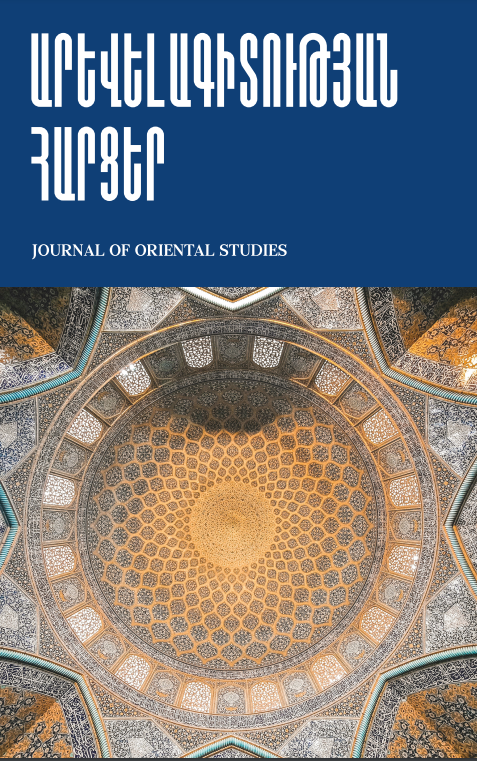GENERAL CHARACTERISATION OF THE CONTENT STRUCTURE OF ISLAMIC IDENTITY IN TURKISH ISLAMIC FICTION
DOI:
https://doi.org/10.46991/jos.2024.25.1.105Keywords:
Islam, Identity, Golden Age, Modernization, Turkish Literature, the West, Incompatibility, ConversionAbstract
Islamic novels provide a unique key to comprehend the role, significance, historical profile, and evolution of Islamic identity within Turkey's political system. These literary works also provide an opportunity to grasp the Islamic movement's struggle for dominance, political rhetoric, and practices based on the emerging Islamic classes. The primary objective of these Islamic novels was to establish an alternative Islamic model, an Islamic society based on a collective "we," by defining and justifying the incompatibility of Islam and modernization. Consequently, it was necessary to confront “them” (“the other”) first, before turning to the source of self-knowledge and self-expression, the “Golden Age”. However, the definition of Islamic identity as interpreted by the “Golden Age” has changed since the 1990s, when texts were written criticizing the monolithic structure of Islamic identity, isolation from the outside world, and the androcentric structure of Islamism.
References
Ոսկանյան Ա․, Ազգային ինքնության հիմնահարցը և մտավորականության կոչումը, Ինքնություն 1, 1995
Бодрийяр Ж., Симулякры и симуляция. Москва, 2003
Açıkel F., “Kutsal mazlumluğun” psikopatolojisi, Toplum ve Bilim 70, 1996, 153-198.
Al-Azmeh, Aziz. Islams and Modernities. London, 1993․
Aytepe M․, Doğuşundan Günümüze İslamcılığın Türkiye Seyri: Bir Sınıflandırma Denemesi, Anemon 4/1, Haziran 2016
Bulaç, Ali. Din ve Modernizm. İstanbul: Yeni Akademi Yayınları, 2006.
Bulut R., “Türkiye’de islami kimliğin oluşumu ve değişimini edebi metinlerden okumak, Uluslararası Sosyal Araştırmalar Dergisi, Cilt: 10, Sayı: 48, 2017
Çayır K․, Türkiye’de İslâmcılık ve İslami Edebiyat Toplu Hidayet Söyleminden Yeni Bireysel Müslümanlıklara, İstanbul, 2008
Chasteen A., Steward G. and Shriver Th., Participant Narratives and Collective Identity in a Metaphysical Movement," Sociological Spectrum 22(1), 2002
Efe M․, Mızraksız İlmihal, İstanbul, 1993.
Erkol Ç., Çalışkan U., 1960’lardan 28 Şubat’a Cemaati Romanlarla İcat etmek: Siyasal İslamın Popüler Tezahürleri, “Moment” dergisi, 3(1), 2016
Göle N., Authoritarian Secularism and Islamist Politics: The Case of Turkey, Civil Society in the Middle East, Vol. 2, 1996, 17-43
Göle N., Modern Mahrem: Medeniyet ve Örtünme, İstanbul, 2016
Göle N․, Secularism and Islamism in Turkey: The Making of Elites and Counter-Elites, Middle East Journal, Vol. 51, No. 1, 1997,46-58
Güldoğan A․, Erdoğan İslami yayınevlerinden ne istedi, OdaTV, Ekim 30, 2017, https://www.odatv.com/yazarlar/asiye-guldogan/erdogan-islami-yayinevlerinden-ne-istedi-126339 (մուտքի ամսաթիվ՝ 15․04․2024)
Karakoç Ş., İslamcılıktan muhafazakârlığa: roman türü üzerinden Türkiye’de islami kimliğin dönüşümü üzerine bir inceleme, İktisadi ve İdari Bilimler Fakültesi KAÜİİBFD, Cilt 14, Sayı 27, 2023, 377-413
Katırcı,Ş. Müslüman kadının adı var , İstanbul, 1989
Lekesiz Ö., Siyasetten Edebiyata İslâmcılık, Türkiye’de İslâmcılık Düşüncesi ve Hareketi Sempozyum Tebliğleri, 2013,633-638
Macit M., “Romantik İslam’dan İslami Romantizme”: İslamcı Popüler Kültürün Değişen Panoraması, İlahiyat Tetkikleri Dergisi, 51, Haziran 2019,457-478
Mol H․, The Sacralization of Identity, Current Research in Sociology, ed. Margaret Archer, Toronto, August 18-24, 1974, https://www.degruyter.com/document/doi/10.1515/9783111681030-011/html (մուտքի ամսաթիվ՝ 14․05․2024)
Sever M., Türban ve Kariyer: evden işe, bizden bireye, İstanbul, 2006
Somers M., Gibson G., "Reclaiming the Epistemological 'Other': Narrative and the Social Construction of Realiry," in Social Theory and the Politics of Identity, ed. Craig Calhoun, Cambridge: Blackwell, 1994,37-99
Tanlı B․, Gültekingil M․, Modern Türkiye’de siyasi düşünce: islamcılık, cilt 6, İstanbul, 2005
Tomlinson J., Cultural Imperialism: a critical introdaction, London, 2002
Tosun N․, Günümüz İslâmi Düşüncesinin Yazınsal Görünümleri, Türkiye’de İslâmcılık Düşüncesi ve Hareketi Sempozyum Tebliğleri, 2013,691-632
Türkeş Ö., Toplum ve Kimlik Kurma Kılavuzu Olarak Roman” in Modern Türkiye’de Siyasi Düşünce: Dönemler ve Zihniyetler, Cilt 9, ed. Tanıl Bora, Murat Gültekingil, İstanbul, 2009, 844-870.
Uğur C., “Hidayete eremeyen” romanlar, Bir Gün, Nisan 27, 2015, https://www.birgun.net/haber/hidayete-eremeyen-romanlar-78076 (մուտքի ամսաթիվ՝ 15․04․2024)
Ulutaş E., Ultra Politik Hidayetten Post Politik Aşka: İslami Edebi Metinlerdeki Epistemik Kopuş, İslâm Düşüncesinde Eleştiri Kültürü ve Tahammül Ahlâki, Milletlerarası Tartışmalı İlmî Toplantı, Cilt 1․Nisan 2019,471-486
Yavuz Y., Hidayet, Türkiye Diyanet Vakfı İslam Ansiklopedisi 17, Ankara, 1998,
Yıldız A․, Boşluk, İstanbul, 2019
Downloads
Published
Issue
Section
License
Copyright (c) 2024 Anushik Martirosyan

This work is licensed under a Creative Commons Attribution-NonCommercial 4.0 International License.
Authors will be entitled in ownership of the copyright for their publications.
Permitted third party reuse is defined by the following user license:
Creative Commons Attribution-Non-Commercial (CC BY-NC). CC BY-NC allows users to
copy and distribute the article, provided this is not done for commercial purposes. The users may
adapt – remix, transform, and build upon the material giving appropriate credit, providing a link
to the license. The full details of the license are available
at https://creativecommons.org/licenses/by-nc/4.0/.
Under this license, authors retain ownership of the copyright for their publications, but
grant Journal of Օriental Studies and Yerevan State University
Publishing house a non-exclusive license to publish the work in paper and electronic form and
allow anyone to reuse, distribute and reproduce the content as long as the original work is
properly cited. Appropriate attribution can be provided by simply citing the original work. No
permission is required from the authors or the publishers.

